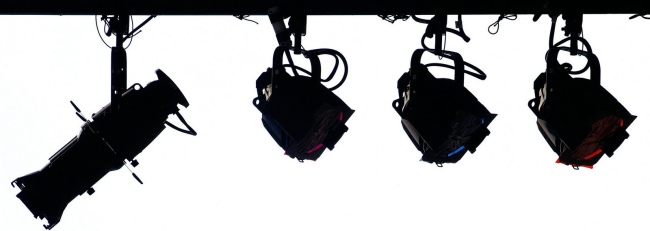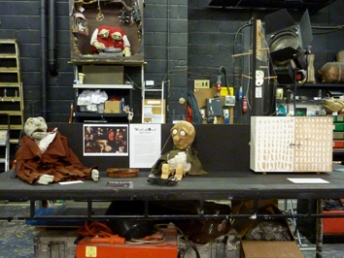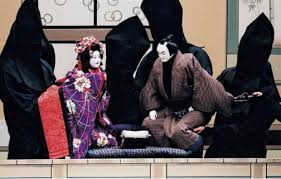Emma Williams – key questions when starting to direct a puppetry project
The Puppet
Why am I using a puppet? Is it justified?
If the processes begins with a puppet I start by watching it and ask simply – What does it do well and where are its limits?
If starting with a script I ask – What does the puppet have to do to make the play work? If the list is too long I go back to the drawing board. Monster puppets are born out of ridiculous expectations unless budget, time and skill are limitless.
The Puppeteers
Am I asking the audience to ignore the puppeteers or see them? If they are visible what is their relationship to the puppet and how does it change and develop in line with the narrative.
Are the puppeteers in my head when I am planning a scene? How many do I need to make it work? And what will the puppet look like when surrounded by these people?
I work for a number of different companies so I also have to ask- Do I need the puppet to work perfectly here, does the puppeteer have to deliver skill and finesse or do I need it to be scruffy and playful where the puppeteer is committed but irreverent.
Because of a few painful moments in the past I now ask Is there any climbing, walking, eating or crying involved? What is so simple for an actor is sometimes unfathomably difficult and time consuming for a puppet. On the plus side what is impossible for an actor, for example being ripped apart and your body parts waltzing around the room, is an absolute gift for a well designed puppet.
You can find out more about Emma and her work here
Emma Williams will lead a Directing Puppetry Workshop and Surgery for Directors on Saturday 10 May in Bristol. To find out more visit our website or call us on 0117 29 3593




